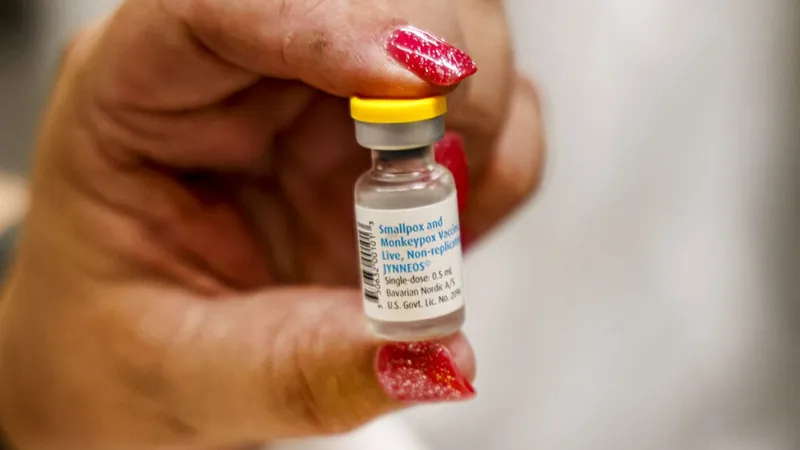
Alarming Drop in Mpox Vaccine Immunity: A Year Later, Are We at Risk?
2024-10-03
Recent research from Harvard Medical School has unveiled a concerning trend regarding the immunity conferred by the mpox vaccine, indicating that antibody levels significantly decrease just 6 to 12 months after vaccination. The study, which analyzed blood samples from 45 individuals who had either been vaccinated against or infected by mpox during the 2022 outbreak, highlights a pressing need for booster shots as experts warn that our defenses could be waning.
Key Findings:
The two-dose regimen of the mpox vaccine—recommended four weeks apart—initially provided a robust immune response. However, a year later, those who received two doses exhibited antibody levels that matched only the peak response seen in individuals who received a single dose. This suggests a limited protective effect over time, emphasizing the importance of potentially resuming booster recommendations for those immunized during the outbreak.
Jonas Albarnaz, a virology and immunology researcher associated with the Pirbright Institute in the UK, remarked, "This study suggests that boosters might be required to maintain vaccine effectiveness.” Indeed, countries like France have already initiated booster recommendations for high-risk groups, including gay and bisexual men, sex workers, and transgender individuals with multiple partners.
Understanding Immunity Beyond Antibodies:
Despite the observed drop in antibody levels, experts caution that this does not necessarily translate to decreased protection in real-world scenarios. Jake Dunning from the University of Oxford stated that the vaccine might have primed the immune system to respond effectively to the virus, even with lower antibody counts. “Vaccines designed to protect against smallpox and mpox may differ in how they stimulate various parts of the immune system, including those with long-term memory functions,” he noted, suggesting that long-lasting immunity might not solely rely on current antibody levels.
The Bigger Picture:
Health authorities globally managed to control mpox outbreaks through strategic public health measures, including widespread vaccination and effective communication. Since that effort, vaccination campaigns have seen nearly 337,000 doses given across 25 European nations, leading to a substantial decline in case numbers. Nevertheless, experts remain vigilant as a new mpox strain has emerged from the Democratic Republic of the Congo, causing growing concerns with over 26,500 cases and 720 deaths reported in Africa this year alone. The World Health Organization declared an international health emergency in August 2023, signaling the need for continued vigilance and adaptive strategies against mpox.
A Call to Action:
As we navigate these evolving challenges, it is crucial to understand our population's immunity levels better and adapt our strategies accordingly. Health experts advocate for further studies, especially including vulnerable populations such as children, pregnant women, and individuals living with HIV, who may face higher risks from the virus.
As we grapple with the realities of vaccine-derived immunity, it is evident that ongoing research, public awareness, and immediate action are essential to mitigate the risks posed by mpox. Are we prepared to take the necessary steps to protect our communities? The answer may lie in our willingness to adapt and respond proactively to the unfolding situation.









 Brasil (PT)
Brasil (PT)
 Canada (EN)
Canada (EN)
 Chile (ES)
Chile (ES)
 España (ES)
España (ES)
 France (FR)
France (FR)
 Hong Kong (EN)
Hong Kong (EN)
 Italia (IT)
Italia (IT)
 日本 (JA)
日本 (JA)
 Magyarország (HU)
Magyarország (HU)
 Norge (NO)
Norge (NO)
 Polska (PL)
Polska (PL)
 Schweiz (DE)
Schweiz (DE)
 Singapore (EN)
Singapore (EN)
 Sverige (SV)
Sverige (SV)
 Suomi (FI)
Suomi (FI)
 Türkiye (TR)
Türkiye (TR)